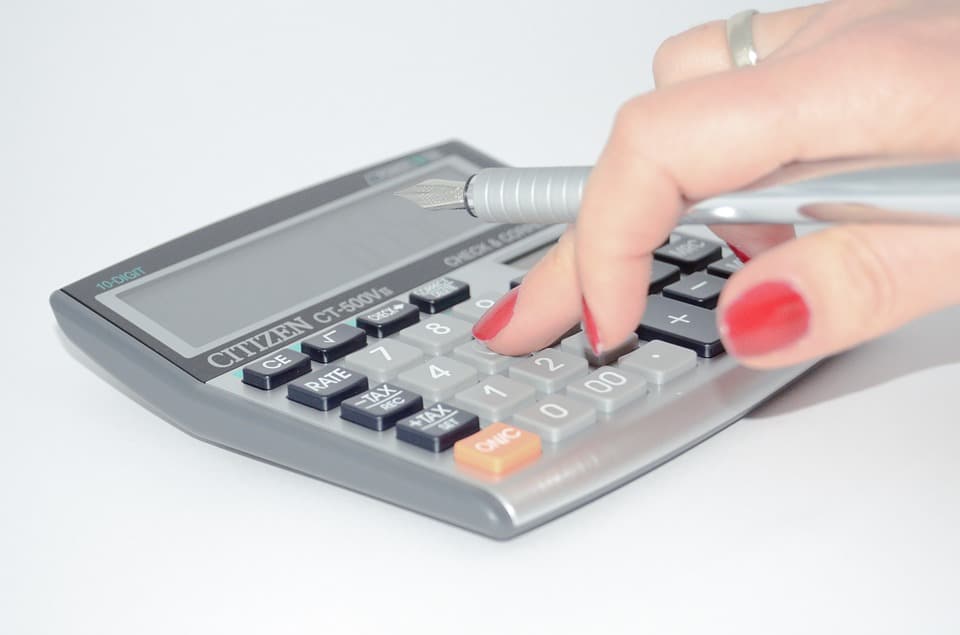Jasmine Birtles
Your money-making expert. Financial journalist, TV and radio personality.


Our council tax bill is the latest thing to report as we prepare for bleak friday and onwards. This Friday has now be coined “Bleak Friday” due to the shocking rises to the cost of living.
Aside from the much publicised hikes in energy costs (up to 54 per cent in many cases), we have outlined all of the changes coming into affect here.
The Department for Levelling Up, Housing and Communities has published its Council Tax tables today: Council Tax levels set by local authorities in England 2022 to 2023
Sarah Coles, senior personal finance analyst, Hargreaves Lansdown:
“Bleak Friday will see council tax bills hiked another £67 on top of horrendous 54% hikes in energy bills and water bills rising as much as 11% in some areas. Annual price rise day on April 1 is going to hit hard and be a Bleak Friday for millions.
The government allowed councils to increase bills as much as 2.99% – including 1% for social care. The councils who didn’t use the full 3% allowed for social care last year can add up to 2% of it to the overall rise, so some will increase as much as 4.99%. On average councils will hike taxes by 3.5%.
An average council tax rise of £67 a year doesn’t sound like it’s going to make a major difference to your household budget, but it’s the last thing people need when so many prices are rising in one day.
The most horrendous price rise will be the 54% rise in the energy price cap from £1,277 to £1,971 a year. It means the monthly energy bill of a typical user on the price cap will rise £57.83 to £164.25. It’s the kind of increase that means even those who consider themselves comfortable will have to think twice about how they can cover the cost.
Meanwhile, water bills are rising by an average of 1.7% (£7) to £419, but the pain doesn’t fall evenly across the country, and while some will see bills fall, others are rising by as much as 10.8%, or £36 (Northumbrian Water), and the most expensive bills will be £472 (South West Water).
Car tax is also on the rise. The standard rate of car tax for cars registered after 2017 is up 6% from £155 to £165. The first-year road tax has also been tweaked to fall more heavily on cars that produce a lot of emissions. It now ranges from £120 to £585 for most people, but rises to as much as £2,365 for the most polluting cars (up £120 in a year). The premium rate – on cars with a list price of £40,000 or more for the first five years of the car’s life – is also up from £335 to £355.

For those planning distant getaways to celebrate more freedom to travel, long haul air passenger duty will also be rising with RPI, so duty on economy flights costs an extra £2, and the tax on other classes of seats is up £5. The cuts to domestic air passenger duty, meanwhile, won’t kick in for another year.
The more positive news is that the TV licence fee is frozen and prescription charges won’t be rising with inflation. Some water bills will also fall – including South West Water, which is down £31 a year. The council tax rebate of £150 will also arrive in April for anyone on Council Tax bands A-D.
On the same day, low earners will see sizeable rises in their pay, because the National Living Wage will rise 6.6% to £9.50 an hour, while the rate for those aged 21-22 rises 9.8% to £9.18, for those aged 18-20 it rises 4.1% to £6.83, for those aged 16-17 it rises 4.1% to £4.81 and the apprentice rate rises 11.9% to £4.81.
However, Bleak Friday will still see your bills rise by an average of £80.41 each month, so, on average, the council tax rebate will cover the extra costs for less than two months, and after that, millions of people will be out in the cold. For anyone whose budget is already feeling the stretch, it could be the final straw.
Usually shopping around can ease the pain slightly, but with no fixed rate energy deals available at less than the price cap, it has become more difficult. You can still make changes to bring down your costs, such as considering moving to a water meter (if you have more bedrooms in your house than you have people and you’re a typical user). And millions of us will be looking very closely into how we can use less energy around the house to help keep our bills down.
If you have spare cash, you can also consider investments that will bring the costs down, such as a more efficient car that’s taxed at a lower rate, or energy efficiency measures at home from solar panels to insulation. New VAT rules also kick in on Friday so that instead of paying 5% VAT on materials for these home improvements, they will be VAT free. However, this only helps shave a little off the cost of a major outlay. Right now, huge numbers of people don’t have the cash to invest in this kind of thing, so no opportunity to benefit from the cut.
Your home will have been put in a Council Tax band from A (the lowest value) to H (the highest). In Wales this goes to I. Band D is used in most comparisons as being the middle of the range.
We have had six years of inflation-busting rises. Prior to that, they had fallen in real terms, and they’ll do so again in 2022-3.
| Year | Average band D council tax in England | Rise from previous year |
| 2022-23 | £1,966 | 3.5% |
| 2021-22 | £1,898 | 4.4% |
| 2020-21 | £1,817 | 3.9% |
| 2019-20 | £1,750 | 4.7% |
| 2018-19 | £1,671 | 5.1% |
| 2017-18 | £1,591 | 4.0 % |
| 2016-17 | £1,530 | 3.1 % |
| 2015-16 | £1,484 | 1.1 % |
| 2014-15 | £1,468 | 0.9 % |
| 2013-14 | £1,456 | 0.8 % |
| 2012-13 | £1,444 | 0.3 % |
| 2011-12 | £1,439 | 0.0% |
| 2010-11 | £1,439 | 1.8 % |
| 2009-10 | £1,414 | 3.0 % |
Top ten band D council taxes
Rutland £2,300
Nottingham £2,294
Dorset £2,290
Lewes £2,281
Wealdon £2,252
Newark and Sherwood £2,252
West Devon £2,231
Bristol £2,230
Oxford £2,225
Hastings £2,219
Council Tax bands are based on what your house was worth at a particular point in the past. In England and Scotland it was 1 April 1991 and in Wales it was 1 April 2003. Unfortunately, because the houses all had to be valued at the same time, there may have been an element of corner-cutting, so some valuations weren’t terribly accurate.
You can challenge your valuation. It’s worth being aware that challenges can be denied, or can mean the valuation is raised instead of lowered – along with your bill, so do a bit of homework before you try it.
